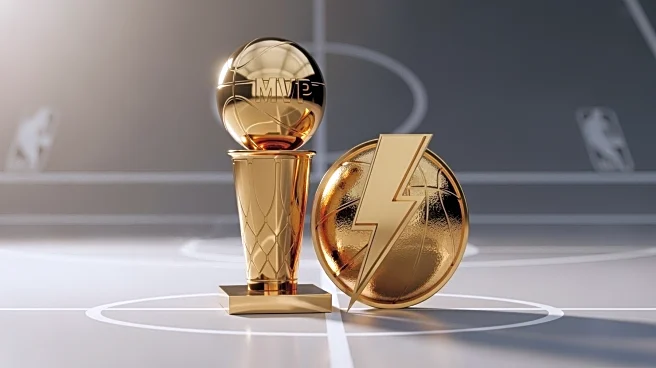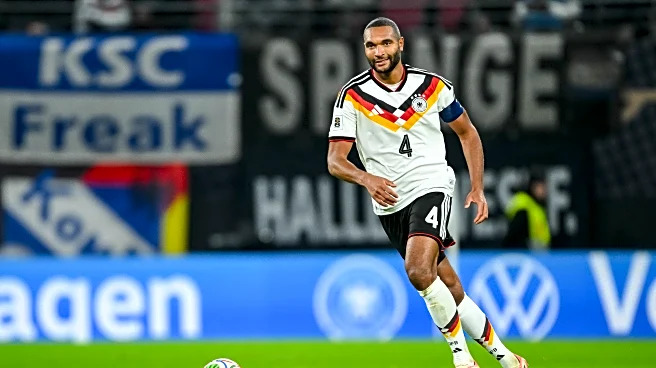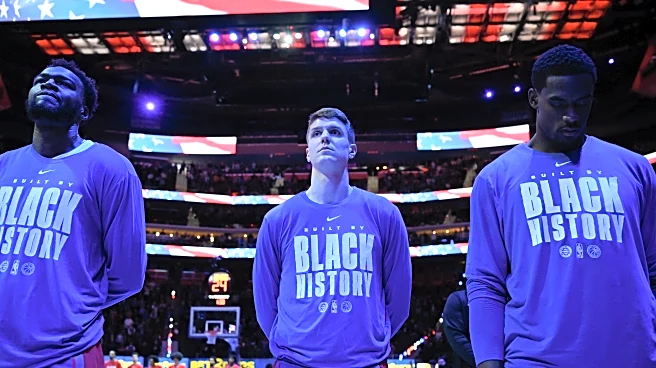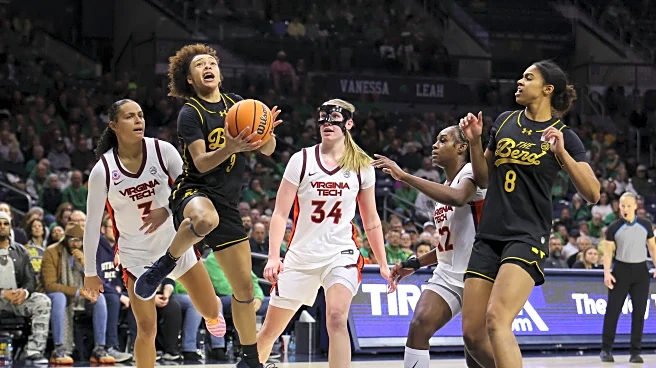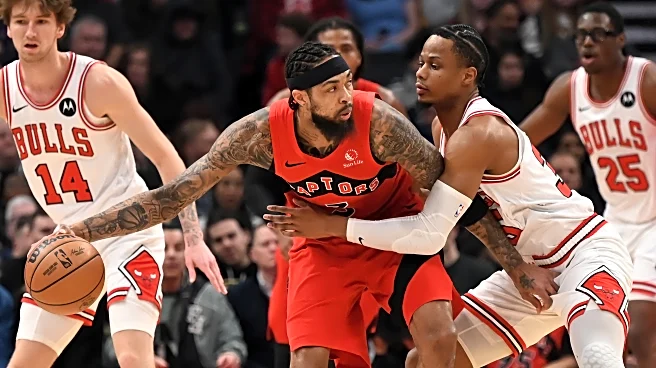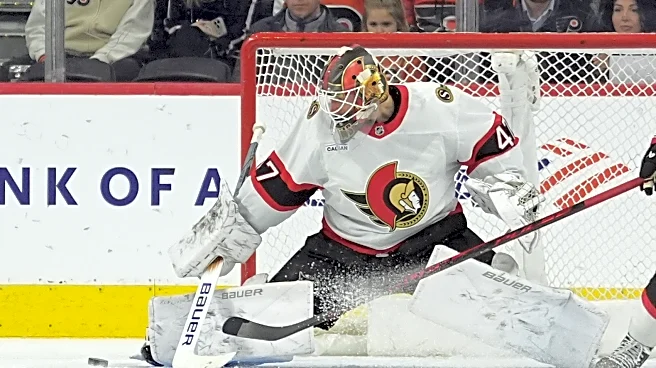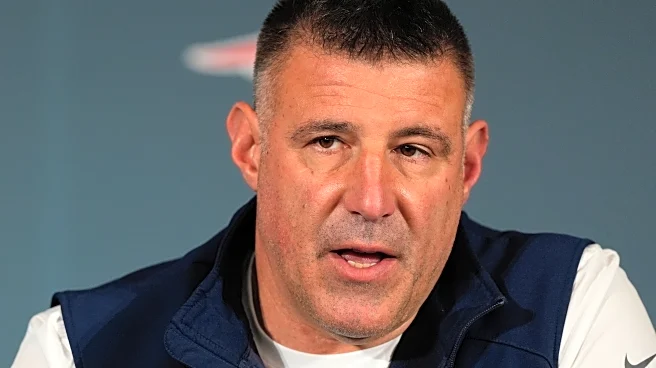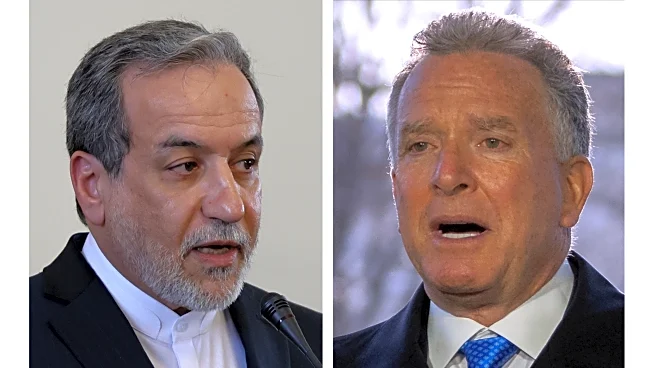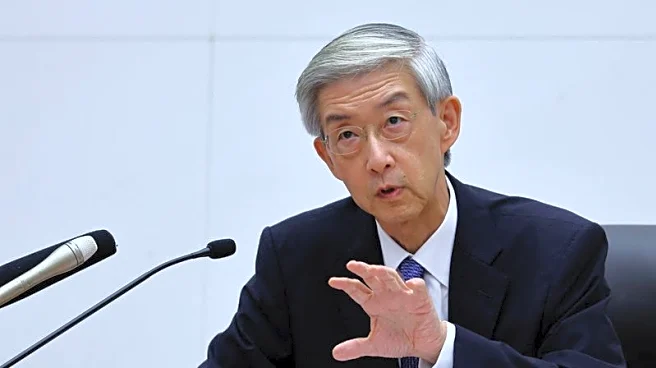What's Happening?
As the NBA 2025-26 season kicks off, analysts are making bold predictions about the league's top performers and teams. Nikola Jokić of the Denver Nuggets is a favorite to win his fourth MVP award, following an impressive previous season where he averaged
29.6 points, 12.7 rebounds, and 10.2 assists per game. Despite not securing the MVP last year due to voter fatigue and team seeding issues, Jokić is expected to lead Denver to a top-three seed this season. Meanwhile, the Oklahoma City Thunder, the youngest team to win a title since 1977, are seen as strong contenders to defend their championship. The Thunder's maturity and growth, led by star player Shai Gilgeous-Alexander, are key factors in their favor.
Why It's Important?
The predictions for Jokić and the Thunder highlight significant trends in the NBA, where the balance between youth and experience is pivotal. Jokić's potential MVP win would underscore his dominance and the strategic depth of the Nuggets, who have strengthened their roster in the offseason. For Oklahoma City, maintaining their championship status would validate their rapid development and strategic team-building. These developments could influence team strategies across the league, as franchises aim to balance nurturing young talent with acquiring experienced players to achieve success.
What's Next?
As the season progresses, all eyes will be on how the Nuggets and Thunder perform against other top contenders like the Los Angeles Lakers and the Golden State Warriors. The Nuggets' offseason acquisitions and the Thunder's ability to sustain their growth will be critical. Fans and analysts will be watching closely to see if Jokić can indeed secure another MVP title and if Oklahoma City can repeat their championship success.
Beyond the Headlines
The focus on Jokić and the Thunder also reflects broader themes in the NBA, such as the impact of player development programs and the role of strategic acquisitions in shaping team success. The league's competitive landscape is increasingly defined by how well teams can integrate new talent and adapt to evolving play styles, which could lead to long-term shifts in how franchises approach team building.
